Business
Trudeau government wants to give CBC more money
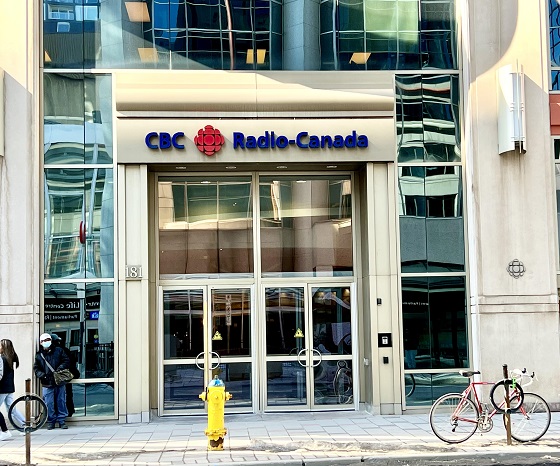
From the Canadian Taxpayers Association
By Kris Sims
The CBC used to air The Simpsons after school.
One of the best episodes was the Cape Fear homage where an FBI agent is trying to change Homer’s last name to Thompson.
After hours of explanation, the kids have fallen asleep, Marge has given up and the agent says, “When I step on your foot and say: ‘Hello Mr. Thompson,’ you nod your head! Got it?!”
Homer did not get it.
The Liberal members of Parliament on the heritage committee still don’t get it either.
The committee has sent a report to the House of Commons urging the government to give the CBC even more money.
“That the Government of Canada provide a substantial and lasting increase in the parliamentary appropriations for CBC/Radio-Canada, allowing it to eliminate its paid subscription services and gradually end its reliance on commercial advertising revenues,” reads the report.
Really? More money? The CBC already takes $1.4 billion year from taxpayers. And that’s not enough?
That amount of money could already cover the salaries of about 7,000 police officers and 7,000 paramedics.
If Trudeau’s MPs want to give the CBC more money so that it can get rid of its advertising and subscription funding, that means a huge cost for taxpayers.
According it’s latest annual report, the CBC collected about $493 million in revenue other than government funding in 2023-24, the bulk being subscription fees and advertising.
This means these Trudeau government MPs want taxpayers to fund the CBC to the tune of about $2 billion per year.
This is the opposite of what needs to happen.
The CBC should be defunded for three key reasons.
The CBC is a huge waste of money, nearly nobody is watching it and journalists should not be paid by the government.
The committee knows this.
And we know they know because the Canadian Taxpayers Federation told them to their faces in testimony before the committee.
CBC CEO Catherine Tait repeatedly testified at the committee and each time she inadvertently made a stronger case to defund the CBC, due to her entitlement and lack of accountability.
Tait refused to say if she will take a severance when she leaves the CBC next year, claiming it’s a personal matter.
It’s not personal if it’s taxpayers’ money.
Documents obtained by the Canadian Taxpayers Federation show Tait is paid between $460,000 and $551,000 this year, with a bonus of up to 28 per cent.
That’s a bonus of up to $154,448. That’s more than the average Canadian family earns in a year.
Just before Christmas last year, Tait cried broke to the committee and afterwards the CBC announced lay offs in its newsrooms.
Documents obtained by the CTF show the CBC handed out big bonuses that year anyway, costing taxpayers $18 million.
As the CBC fan group Friends of Canadian Media put it: “This decision is deeply out of touch and unbefitting of our national public broadcaster.”
It gets worse because the state broadcaster isn’t even doing a good job.
According to the CBC’s latest quarterly report, CBC News Network’s national audience share is 1.7 per cent.
Documents obtained by the CTF show the CBC’s supper hour newscast drawing microscopic audiences, with 0.7 per cent of Toronto watching the six o’clock news on CBC.
Journalists should not be paid by the government because it’s an obvious conflict of interest.
You can’t hold the powerful government to account if you’re counting on that government for your paycheque.
Such government funding of media has contributed to the rapid erosion of trust in the news media, with 61 per cent of Canadians saying they think journalists are “purposely trying to mislead people by saying things they know are false or gross exaggerations.”
CBC’s entertainment programming barely fares better. The Murdoch Mysteries, which is not produced by the CBC, pulls in its biggest audience with about 1.9 per cent of the population watching.
The politicians on the committee know all of this, and yet, like Homer Simpson, they are not getting the message.
If the CBC needs money, it should earn that money itself.
Taxpayers can’t afford the state broadcast’s bill now, let alone hundreds of millions more.
It’s time to defund the CBC.
Kris Sims is the Alberta Director for the Canadian Taxpayers Federation and a former member of the Parliamentary Press Gallery.
Business
Ford’s Whisky War

 Marco Navarro-Génie
Marco Navarro-Génie
One could do a whole series of opinion and research pieces on how poorly educated Canadian politicians are about economic and trade principles. Below is my latest on the topic, focusing on Doug Ford’s latest philistine tantrum. My next piece will be on Wab Kinew. Writing on their lack of discipline and poor habits can be a cottage industry for commentators.
Haultain’s Substack is a reader-supported publication.
To receive new posts and support our work, please consider becoming a free or paid subscriber.
Try it out.
When a politician pours whisky on the ground, it usually means she has run out of ideas.
A few weeks ago, in September, Ontario Premier Doug Ford staged a protest worthy of a talk-show segment. Before a union crowd in Brampton, he emptied a bottle of Crown Royal onto the stage and vowed its maker, Diageo, would “pay dearly.” He threatened to pull Crown Royal (and several ither brands) from LCBO shelves, declaring Ontario would use its market power to punish the distiller for closing its Amherstburg bottling plant.
It was a vivid scene, part theatre, part tantrum, and entirely revealing.
Diageo is one of the world’s largest producers of spirits and beer, headquartered in London, England. It owns more than two hundred brands, including Johnnie Walker, Guinness, Tanqueray, and Baileys, and sells in over 180 countries. The company was formed in 1997 through the merger of Guinness and Grand Metropolitan, and it inherited Crown Royal from the old Seagram portfolio. Diageo’s Canadian operations remain significant, with the Gimli, Manitoba distillery producing every drop of Crown Royal whisky sold worldwide. It’s a Canadian product.
Diageo’s decision was not an act of treachery but arithmetic. The company plans to close its Amherstburg facility by 2026, shifting bottling to Quebec and parts of the United States. Roughly two hundred jobs will vanish. For a town of twenty-three thousand, that is a deep cut. Yet Ford’s reaction transforms an industrial decision into a political drama. He recasts an economic adjustment as a moral betrayal, as if loyalty to Ontario were a debt every business must pay in perpetuity.
That sentiment plays well at partisan rallies. But in practice, it blurs the boundary between government and market. When politicians confuse the two, policy becomes a tool of temper rather than governance.
Once a premier signals that he will use public institutions like the LCBO as weapons, investors take note. And they should. They infer that Ontario’s business climate can change with the premier’s mood. Capital, unlike politicians, is dispassionate. It goes where rules are predictable and contracts honoured, not where leaders lecture firms for disobedience.
Markets, as Adam Smith observed, are a network of trust. Replace trust with coercion or shaming, and investment flows away as surely as whisky poured on the pavement.
Ford casts himself as the friend of “working people.” Yet his fury threatens workers far from Ontario. The whisky he attacked onstage is distilled and aged in Gimli, Manitoba, from prairie grain and Canadian labour. Eighty people work at that distillery. Thousands of farmers supply its rye and corn. If Diageo decides Canada has become a political hazard, those Manitoban jobs will be among the first casualties. A tantrum in Brampton can send a chill all the way to Lake Winnipeg.
This is the irony of populist economic nationalism: in defending a few hundred local jobs, it imperils thousands more across the whole federation. It’s thoughtless.
Ford’s rhetoric also clashes with his own record. When electric-vehicle battery ventures trimmed their job projections despite billions in subsidies, the premier offered understanding, not outrage. When Brookfield shifted parts of its business operations abroad, there was no rally, no public denunciation, no bottle hitting the floor. Evidently, corporate disloyalty is tolerable, until it involves whisky.
Such inconsistency is not a principle but an impulse. Governments that choose favourites create uncertainty for everyone. When rules bend to political sentiment, each firm wonders whether it will be next in line for punishment. And so the province that once competed for investment becomes a place investors compete to avoid.
If Ford truly wished to defend Ontario’s workers, he would ask why bottling in his province became uneconomic in the first place. The answer is not a mystery. Ontario carries high energy costs, heavy regulation, and steep land prices. Every company weighs those burdens. Threatening one firm for noticing them will not persuade others to stay.
Political anger cannot repeal common sense arithmetic.
The irony deepens because Crown Royal remains Canadian in every essential sense. Its grains, water, and labour are Canadian. Its distilling craft and heritage are Canadian. Ownership by a British firm changes the shareholder, not the spirit. Punishing that success because it offends provincial pride reduces patriotism to parochialism. The brand’s global reach is a quiet advertisement for Canadian skill, and it is an achievement to be respected, not vandalized.
The premier’s defenders will say he is merely standing up for Ontario workers. But bluster is not courage. Proper defence of working people lies in creating the conditions that let enterprise and local ingenuity flourish. When government swaps policy for theatre, it only feeds resentment and starves opportunity.
Economic freedom depends on restraint. Governments must regulate and tax modestly, but they must also know when not to act. Every unnecessary intervention signals risk. The LCBO should be a neutral marketplace, not a political cudgel. Once it becomes a stage for senseless retribution, the line between free commerce and state coercion dissolves.
Ontario’s grievance is understandable; its method is reckless. A government may lament job losses, negotiate incentives, or compete for reinvestment. It may not commandeer a marketplace to punish a decision it dislikes. In a constitutional order, power is exercised through law, not vendetta.
Amherstburg deserves sympathy. No question. Two hundred jobs lost in a small town is no abstraction. Yet the premier’s faux fury will not restore them. Instead, it risks ensuring that the next investor leaves quietly rather than risk the wrath of the premier and public humiliation. Markets remember humiliation longer than speeches.
Crown Royal will survive this episode. The whisky made in Gimli will continue to be sold worldwide, enjoyed by people who have never heard, and will likely never hear, of Ontario’s premier. But the image of a provincial leader pouring it out onstage will endure too. It is an emblem of how quickly cheap populism can trade reason for spectacle.
Ontario must decide what kind of province it wishes to be: a jurisdiction that welcomes enterprise, or one that punishes it when it moves. If every business is expected to pledge fealty to the premier’s emotions, the province will learn how swiftly loyalty evaporates.
When politics meddles in markets, both lose dignity. The government becomes a performer; the market, its prop. The result is neither freedom nor prosperity, only theatre.
Doug can pour out all whisky in Ontario, if he likes. The rest of the world will raise a glass to markets that keep their cool.
Haultain’s Substack is a reader-supported publication.
To receive new posts and support our work, please consider becoming a free or paid subscriber.
Try it out.
Business
Ethics on Ice: See You Next Year
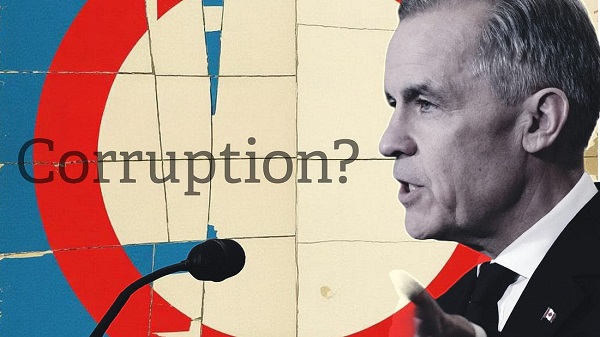
Democracy Watch reveals the Prime Minister’s ethics firewall is riddled with loopholes—while the Privy Council delays access to records that could expose just how deep the conflicts run
Ottawa’s most creative writers don’t work at the CBC. They work at the Privy Council Office, where “transparency” now means grabbing a lawful deadline by the collar and hurling it four months down the road. According to Democracy Watch’s October 16 press release, the PCO was legally required to respond by September 25 to an Access to Information request filed August 28. What did the request ask for? National secrets? State security files? No—it asked for basic stats and documentation about Prime Minister Mark Carney’s so-called ethics “screens.”
Read the full press release here
Specifically:
- The date his personal screens came into force
- The identities of those enforcing them
- The number of decisions flagged for review
- And how many times Carney recused himself from Cabinet discussions
You’d think if those screens were doing anything meaningful, the answers would be simple—ready to go. But instead of complying with the deadline, the PCO told Democracy Watch they now need until January 25, 2026 to respond. Why? They claim they need to conduct a “consultation.” Over what? No private info was requested, no corporate secrets, no personal data—just raw numbers and public official names the PCO has on hand every single day if the screens are actually being enforced.
Here’s the con: Mark Carney straps on an “ethics screen,” gives the cameras his best global finance smirk, and strolls right back into the room. Why can he do that? Because in Ottawa’s broken ethics law, there’s a magical phrase that turns a real, direct financial conflict into a non-issue with a single bureaucratic flourish. That phrase is: “general in application.”
As Democracy Watch lays out in their October 16 press release, this loophole isn’t just a flaw in the system—it is the system. The federal Conflict of Interest Act says that if a government decision affects a broad class of people or entities, then it doesn’t count as a “private interest,” even if it directly benefits a company the Prime Minister owns shares in. That’s right. If the impact is spread out enough—if the policy touches lots of players—Carney can stay at the table, vote, advise, shape, and spin, even if his own investments stand to gain.
Democracy Watch calls this out as part of what they’ve labeled the “dirty dozen” loopholes—12 major escape hatches in Canada’s ethics laws that allow top officials to profit while pretending to recuse themselves. And this one is the crown jewel. It essentially allows the Prime Minister to participate in nearly every federal decision—from regulatory changes to tax policies to infrastructure contracts—even if his private holdings are directly tied to the outcome.
And make no mistake: Carney’s holdings are not theoretical. According to Democracy Watch, he’s invested in over 550 companies, including a huge financial stake in Brookfield Corporation and Brookfield Asset Management, where he previously held senior roles. His so-called “blind trust”? Not blind at all. He picked the trustee. He knows what’s in it. He can give instructions like “don’t sell,” and he still holds stock options he can’t divest for years. So yes, he knows exactly what he stands to gain.
But thanks to the “general in application” clause, Carney can sit in on policies that steer money toward sectors he’s tied to, influence regulatory landscapes that shape Brookfield’s future, and greenlight decisions that send his portfolio climbing—all while claiming he’s acting ethically because it affects “everyone.”
It’s the most cynical kind of legal gymnastics. And as Democracy Watch rightly points out, it makes the ethics “screen” nothing more than a smokescreen—a PR tool to assure Canadians their Prime Minister is above reproach, while the mechanics of power still tilt in his financial favor.
This isn’t conflict of interest prevention—it’s institutionalized denial. It’s Ottawa’s version of “these aren’t the droids you’re looking for.” Wave the hand, invoke the clause, and suddenly there is no conflict, even when the money trail says otherwise.
You can smell the boardroom cologne from here. The man spent years in the C-suite orbit, and now we’re told that a couple of screens and a “blind trust” will purify the air. Blind? Don’t insult the country. He knows what he put in it, picked the trustee, can give instructions, and—minor detail—still sits on stock options he can’t sell for years. That’s not blind; that’s a portfolio with push notifications.
Meanwhile, the screens perform their real function: hiding recusals. The law says public declarations are required when you step aside. The workaround says, “Nah, just put up a screen and pretend it’s automatic.” It’s ethics by decorative throw pillow, looks tasteful, does nothing.
And when Democracy Watch asks for the most basic receipts—start date, who enforces, how many flags, how many recusals—the PCO collapses onto the nearest fainting couch like a silent-film star. “Oh dear, a request… for numbers?” Numbers! The scandal. Spare us. This isn’t decrypting alien radio; it’s checking a ledger. If the tally weren’t humiliating, they’d punch it into a calculator, hit “equals,” and email it before their Tim Horton’s muffins cool at the morning briefing.
Let’s be adults: if this “screen” actually had teeth, they’d mount the skulls on the wall. We’d get glossy dashboards, color-coded bar charts, triumphal pressers—“Look at all the times the PM bravely recused himself!” Instead, we get a bureaucratic calendar punt past Christmas. Why? So the Prime Minister can keep cosplaying as “arm’s length” while still grazing every file that moves a share price.
And the choreography is always the same: stall, euphemize, declare victory. First the delay, then the jargon—“consultations,” “processing,” “complexity”—all to avoid admitting the obvious: either the screen caught almost nothing, or what it caught is too awkward to show you. If this thing had bite marks, we’d see them. Instead, we’re told to admire the muzzle while the dog keeps chewing the furniture.
And that’s the point, isn’t it? The so-called “ethics screen” isn’t a safeguard—it’s set dressing. It’s the cardboard scenery they roll out behind the Prime Minister every time someone asks about his investments. The whole thing’s a pantomime of virtue. The script says “public service,” but the plot twist is always the same: self-service.
And look at how allergic this government is to sunlight. Democracy Watch’s request gets punted to January, and now our own request—for the same basic documents—gets quietly shoved down the road to June. June! Past the next controversy, past the next budget, probably past the next scandal. It’s the oldest Ottawa trick: when the fire’s burning, move the deadline to when everyone’s forgotten the smoke.
Here’s the ugly truth: every day this file sits buried in the government’s filing cabinet of shame, the Prime Minister keeps right on shaping policies that could pump up the value of the very companies he’s tied to. He’s not waiting for the ethics commissioner; he’s waiting for the news cycle to move on. And while the bureaucrats “consult,” he’s still in the room, still making calls that ripple through the markets.
And every delay, every “extension,” every smug little shrug from the Privy Council Office is another giant, flashing neon sign that says: “We think you’re stupid. We think you’ll forget.” They’re counting on it. They’re betting you’re too busy, too distracted, too demoralized to notice while they drag this thing past winter, past spring, right into a bureaucratic black hole where inconvenient truths go to die.
And the state broadcaster? The CBC won’t touch this with a ten-foot carbon-neutral pole. Not while it risks putting their favorite global finance guru in a bad light. You won’t see a Fifth Estate exposé, no stern voiceovers about conflicts of interest, no dramatic music. But guess what? I’m following it. I’m not letting it go. Because this isn’t a paperwork mix-up. This is a full-scale cover operation dressed up as “consultation.” And if they’re hiding the numbers, it’s because the numbers are bad.
Because here’s what’s really going on: the people writing the rules are also holding the shares. They’re voting in Cabinet while their investments sit in the exact sectors they’re regulating. They’re shaping fiscal policy while their portfolios quietly hum in the background. That’s not democracy. That’s not public service. That’s a rigged casino where the dealer already knows which cards are coming.
And the longer these records stay buried, the more obvious it gets. If this ethics screen was real, they’d have shown it to you already. If the Prime Minister was actually recusing himself, the list would be public. But it’s not. Instead, they’ve given themselves months—into NEXT YEAR—to keep this locked away, far past the next scandal, long after the press loses interest.
Let me be absolutely clear: the Prime Minister is could be profiting from the very policies he’s enacting, and no one in Ottawa wants to talk about it. That should enrage you. Because if the guy running the country is making money off your mortgage rates, your tax dollars, your energy bills—while hiding behind an ethics “screen” so flimsy it might as well be cling wrap—that’s not just unethical, it’s corrupt. And every Canadian deserves to know.
For the full experience, upgrade your subscription.
-

 Red Deer22 hours ago
Red Deer22 hours agoThe City of Red Deer’s Financial Troubles: Here Are The Candidates I Am Voting For And Why.
-

 Business1 day ago
Business1 day agoCutting Red Tape Could Help Solve Canada’s Doctor Crisis
-
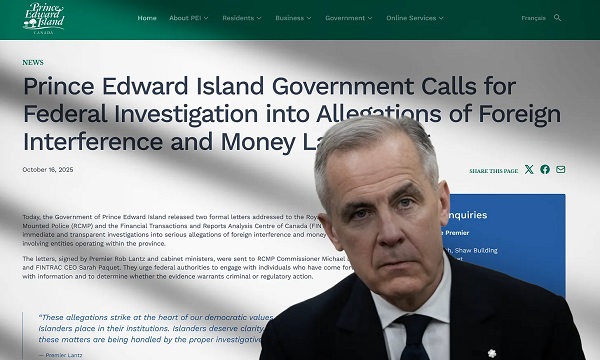
 espionage1 day ago
espionage1 day agoPEI to Ottawa: Investigate CCP Footprints—Now
-
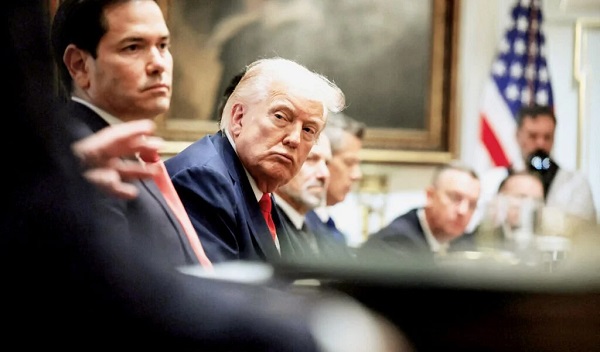
 Bruce Dowbiggin1 day ago
Bruce Dowbiggin1 day agoBrokeback President: We Can’t Quit You, Donald
-

 Energy1 day ago
Energy1 day agoPrince Rupert as the Optimal Destination Port for an Alberta Crude Oil Pipeline –
-
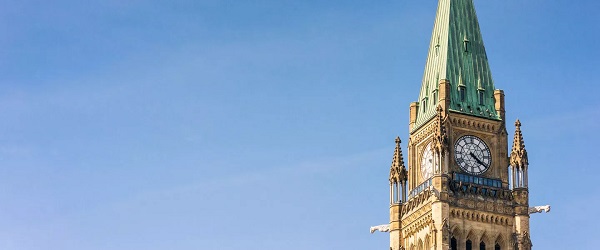
 Business23 hours ago
Business23 hours agoFederal Budget 2025: A responsible media would ensure Canadians know about the dismal state of federal finance
-
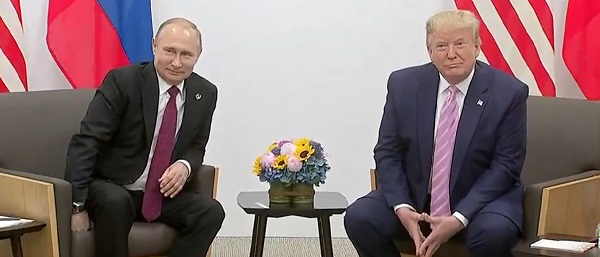
 Daily Caller1 day ago
Daily Caller1 day agoTrump, Putin Agree On High-Stakes Meetings To Negotiate End To Ukraine War
-

 espionage2 days ago
espionage2 days agoBreaking: P.E.I. Urges RCMP Probe of Alleged Foreign Interference, Money Laundering








